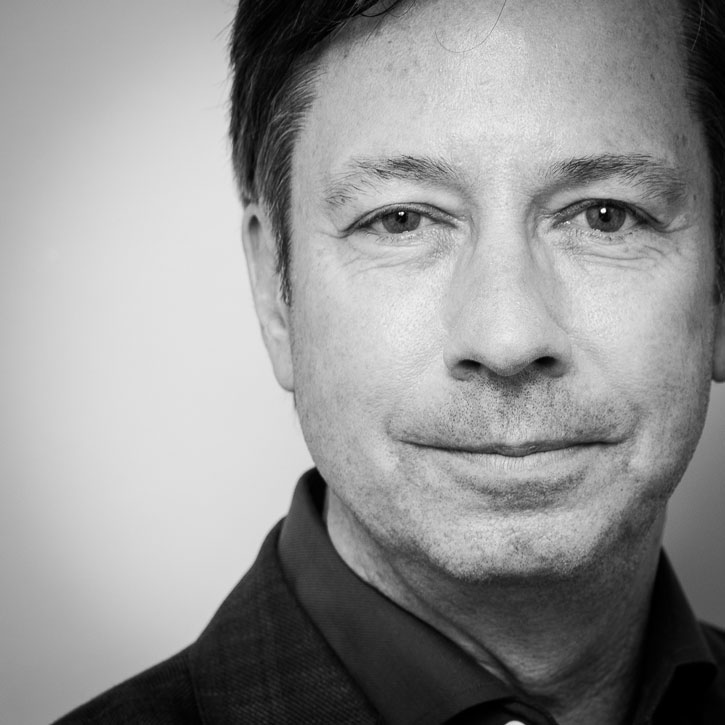
Artificial intelligence a positive for our planet: Peesker
USask alumnus has a front-row seat to the evolving technology as Microsoft leader
By Sarath Peiris“Artificial intelligence (AI) will impact every industry and all organizations, regardless of size,” says Kevin Peesker (BComm'89), a tech-veteran and University of Saskatchewan alumnus, who heads Microsoft’s US $60 billion-plus Worldwide Small, Medium, Corporate and Digital Sales business.
Peesker, who served five years as Microsoft Canada’s president before his 2022 promotion, is hopeful that as generative AI evolves and enters the mainstream, institutions such as the University of Saskatchewan (USask) will continue to be at the leading edge of the technology and embrace it for faculty and students.

Born and raised in Saskatoon, Peesker made a choice to attend USask both for its academic excellence and its proximity to family following the sudden death of his father.
“Fortunately, I knew I could have the best of both worlds, and I remain grateful there was a world-class university right in my backyard. USask was not a difficult choice to make,” said Peesker, who remains a Huskies fan and ardent promoter of his alma mater.
“I knew USask had a diverse set of students and professors from around the world. It is highly regarded as a research university, and it had a strong business and finance program at the College of Commerce,” he said.
Graduating in 1988 with a bachelor of commerce in finance and marketing, Peesker’s keen interest in international business and international finance propelled his career trajectory.
Leadership positions in USask’s Investment Students’ Society, AIESEC and the Marketing Students Society, and his selection as Canada’s representative to a meeting in Europe of international business students from more than 30 countries whetted Peesker’s appetite for global business.
“Successfully leading a multibillion-dollar global organization today was possible because of the wonderful education and student leadership experience at USask, not to mention outstanding mentorship and support from the faculty,” he said. “That has proven to be highly valuable academically and personally, creating many treasured friendships and building a network that has served me well.”
AI stands to be the next Internet or industrial revolution, said Peesker, who is bullish that the power of technology can solve humanity’s greatest challenges: “It’s a passion of mine—one that extends into the opportunities we see ahead for AI and new avenues to bridge the digital divide.”
AI will be a force multiplier in the tech sector, where cloud technology already has demonstrated its power and ability to democratize access to knowledge, markets, and capabilities, Peesker said.
Microsoft and Peesker’s philosophy around AI is an additive one that sees the technology evolving and improving over time to help scale up people’s capabilities. Human discernment, creativity, and critical thinking will become the most highly valued skills for a future where AI is widely incorporated into daily life.
“We see AI as an augment technology or ‘co-pilot’ to human ingenuity, saving people time by performing mundane tasks, accessing, and synthesizing vast amounts of data rapidly” said Peesker, who noted that he employs AI every day to summarize meeting notes and quickly source information.
Peesker has seen up close how his wife, Dr. Karen Peesker (PhD), an assistant professor at Toronto Metropolitan University where she co-founded the Ted Rogers School of Management Sales Leadership Program, and his son, Matthew, a college student in economics and data science, use AI to enhance their productivity and accelerate learning.
In the educational sphere, Peesker sees AI technology such as OpenAI making a huge contribution as the best possible teaching and research assistant or student tutor in the world, regardless of where students live or the socioeconomic barriers they face.
“That is the power of AI,” he said. “It’s the collective insights of billions of datasets organized and procured in seconds. Student learning, professor research, and academic insights all will be advanced with use of this technology,” he said, “and the AI we are seeing today are just the beginning.”
Peesker also firmly believes that AI takes technology out of the sole purview of computer science departments, requiring a mindset change that accepts AI will impact all forms of science, medicine, agriculture, finance, geology, energy, psychology and other areas.
“Preparing this generation of workers with the skills to thrive in an AI world will be key to any institution’s long-term success,” he said.
“I hope programs offered at USask are actively preparing to welcome young, eager minds in programs that expose, adopt, utilize, and train on these large language models. The work USask does as a recognized leader in the fields of agriculture, environmental studies, and water and food security are examples of where technology is driving innovation.”
Peesker launched his global career in Montreal, followed by work in Africa, the United Kingdom, and Australia, and gained experience in the first 15 years at several tech companies, including IBM and Lexmark where he held various sales, marketing, strategy, finance, and operational positions.
“IBM encouraged me to think more broadly than the silo of finance and provided me with opportunities to build my talents across the many functional areas of the company, which eventually made my transition to Dell as a country leader possible,” said Peesker, who served five years as head of Dell in Canada before moving on to Microsoft Canada.
The breadth of experience he gained across multiple disciplines as a country leader at Dell was seminal, he said, as was the appreciation for the power and purpose of building a healthy and productive corporate culture gained by working at several companies and continents.
“I also learned pretty early on that success is not about climbing the promotion ladder, but about investing in your learning, building skills, and having meaningful impact.”
For Peesker, notable achievements as head of Microsoft Canada include his team’s success in leading the industry in digital transformation and the move to the cloud, as well as working with the company’s education team to advocate for integrating digital skilling into school and university curricula.
“Technical literacy and utilization are critical to Canada’s long-term success as a foundation to bolster our local economies, and I want all Canadians to succeed, have access to and reap the benefits from technological advances,” he said.
In his new global role at Microsoft, Peesker is responsible for strategy, investment decisions, operational execution and leading people.
He said the critical aspect of leadership today involves building and sustaining a culture that enables each team member to bring their true self, unique skills, and capabilities to work. The aim is to realize Microsoft’s mission of empowering every person and organization on the planet to achieve more through building the right models and programs, helping them to maximize and accelerate value for themselves, their customers and partners.
“That culture is built on the same values I hold personally important—operating principles of respect, integrity, and accountability—and, of course, creating relationships and leveraging Microsoft’s massive global scale to deliver meaningful impact to the communities we serve.”
Even though his work involves what he terms a “robust travel schedule,” Peesker ensures that he carves out time to spend with his family—Karen, Matthew, and his youngest, Alexandra, who recently graduated from high school and is in college.
“There’s no one on this planet I enjoy spending time with more than them,” he said, after returning to work in early September from an extended summer holiday getting his children settled in their respective schools and time at his family’s cottage.
“You know what they say about all work and no play….”

